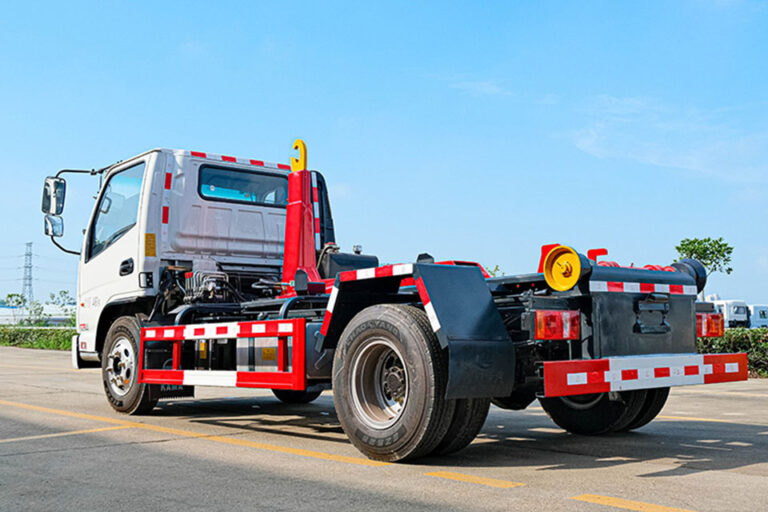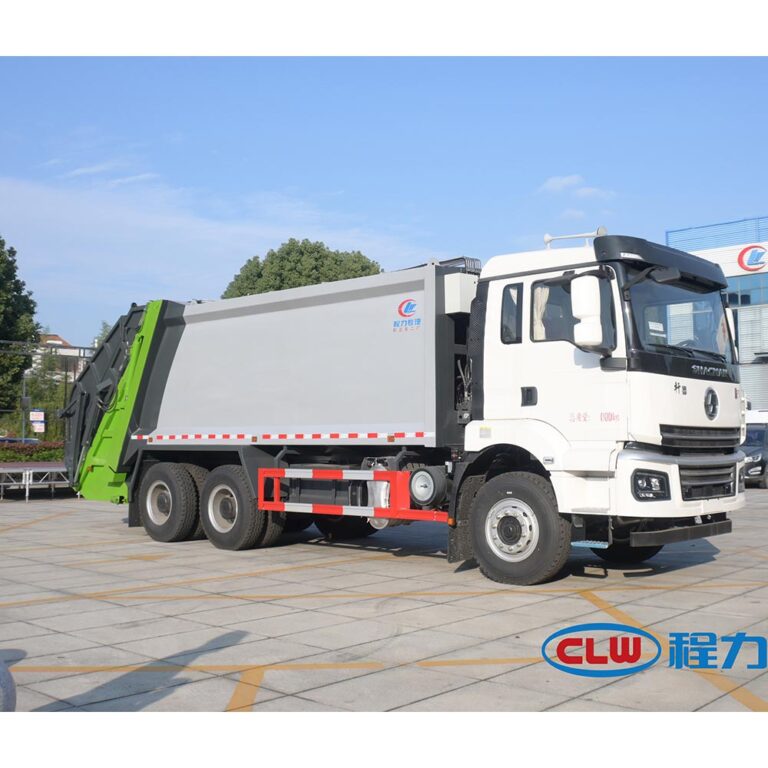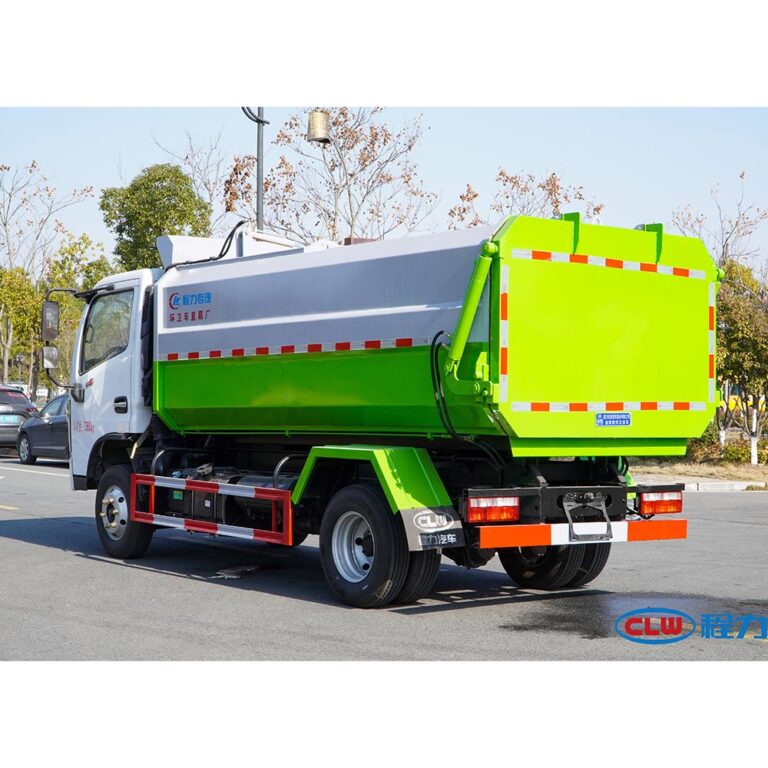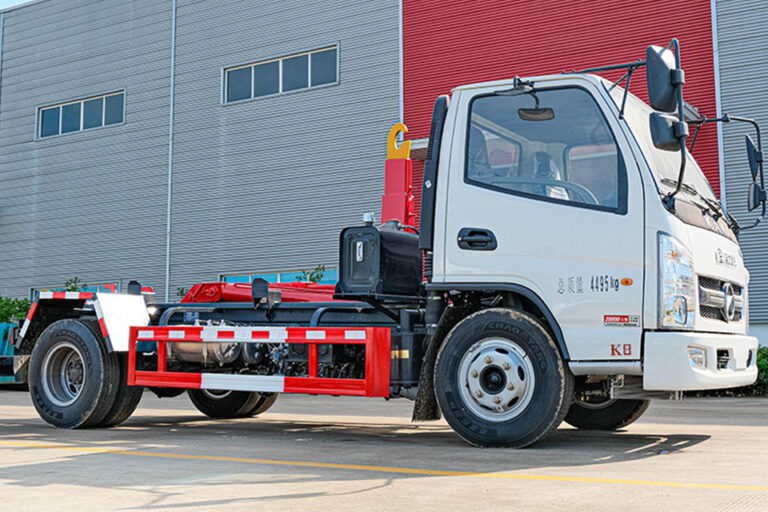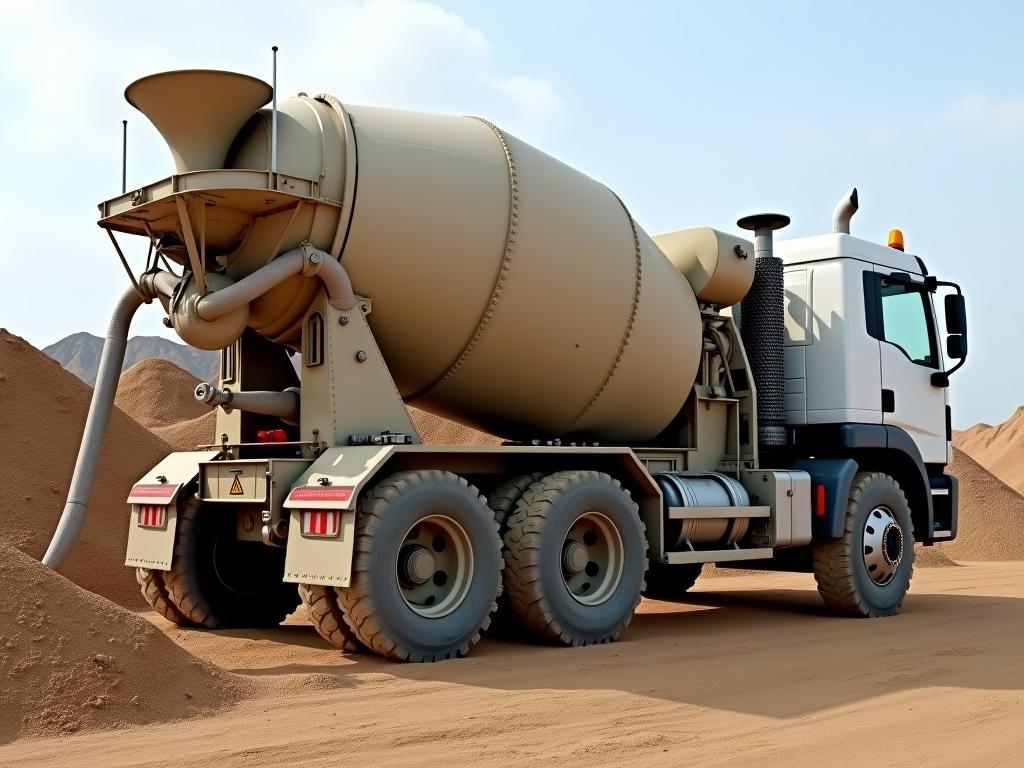
quels sont les différents types de camions à béton
Camions à béton : Le guide ultime des types, des malaxeurs et des projets de construction
Ce guide complet plonge dans l'univers des camions à béton, en explorant les différents types, leurs fonctionnalités uniques et la façon dont ils contribuent à une livraison efficace du béton pour divers projets de construction. Que vous soyez un entrepreneur chevronné ou un nouveau venu dans le secteur, il est essentiel de comprendre les nuances des camions à béton pour optimiser vos projets. Cet article fournit des informations précieuses sur le choix du camion à béton adapté à vos besoins spécifiques, ce qui vous permettra d'économiser du temps et de l'argent. Nous aborderons tous les aspects, des malaxeurs à tambour traditionnels aux malaxeurs volumétriques innovants, en tenant compte de considérations clés telles que la taille du projet, le type de béton et l'accessibilité.
Table des matières
Quels sont les différents types de camions à béton ?
Les l'industrie de la construction s'appuie fortement sur des livraison de bétonet en choisissant la bonne type de camion à béton est primordiale. Deux catégories principales dominent le marché : camions à béton standard pour le transport en commun et camions-bétonnières volumétriques. Standard camions à béton de transitégalement connu sous le nom de béton prêt à l'emploi camions, transport béton pré-mélangé d'un usine de traitement par lots à la chantier de construction.
D'autre part, camions-bétonnières volumétriques transporter les matières premières - ciment, agrégatet l'eau - séparément et mélanger le béton sur place selon les besoins. Cette distinction essentielle fait de la volumétrie camions idéal pour les projets nécessitant une mélange de béton dessins ou modèles plus petits lots où le transport d'un camion de béton prêt à l'emploi n'est pas rentable. Nous fabriquons une grande variété de camions à usage spécial, tels qu'un camion-citerne pour le transport de carburant, pour répondre à tous vos besoins en matière de transport.
Qu'est-ce qu'un camion malaxeur de béton volumétrique ?
A camion-bétonnière volumétrique révolutionne production de béton en amenant l'ensemble des usine de traitement par lots à la chantier de construction. Au lieu de transporter béton prêt à l'emploi, ces camions portent des compartiments séparés pour ciment, agrégatet de l'eau. Un système informatisé sophistiqué mesure et mélange avec précision ces matériaux au sein de l'unité de production. du camion mélangeurLa production de produits frais et personnalisés béton sur demande.
Cela permet d'éliminer les inquiétudes concernant béton durci en transit et permet de les mélanges des ajustements à la volée. Ce système sur site processus de mélange du béton garantit que vous recevrez l'exacte quantité de béton Les produits sont fabriqués à partir de matériaux recyclés, ce qui permet de minimiser les déchets et d'optimiser l'efficacité. Vous pourriez également être intéressé par notre camion de transport d'huile alimentaire pour vos besoins en matière de transport de denrées alimentaires.
Comment fonctionne un camion malaxeur à béton ?
Un traditionnel camion-bétonnièreavec son emblème rotatif tambourest une merveille d'ingénierie. Les tambour tourne en continu pendant le transport, ce qui permet de maintenir la mélange de béton en mouvement constant pour éviter le durcissement. À l'intérieur du tambourLes lames sont positionnées de manière stratégique pour soulever et faire tomber l'eau. bétonpour assurer l'homogénéité du mélange.
À l'arrivée au chantier de construction, la direction de la du tambour est inversée, ce qui permet au béton de s'écouler le long d'un goulotte dans la zone désignée. La vitesse du du tambour La rotation peut être réglée pour contrôler le taux de décharge, ce qui facilite la mise en place précise de l'appareil. béton. Pour les tâches spécialisées, pensez à notre camion-citerne de sable de fracturation conçu pour les opérations lourdes.
Quels sont les avantages de l'utilisation d'un camion malaxeur à béton ?
L'utilisation d'un camion-bétonnière offre de nombreux avantages en matière de projets de construction. Tout d'abord, il garantit la livraison de produits frais et de haute qualité. bétonLe transport de l'acier est essentiel pour obtenir une résistance et une durabilité optimales des structures. En transportant béton prêt à l'emploi ou en le mélangeant sur place avec mélangeurs volumétriques, camions éliminent la nécessité d'un mélange manuel, ce qui permet de gagner du temps et de réduire les coûts de main-d'œuvre.
Deuxièmement, camions à béton offrent un contrôle précis sur les quantité de béton Ils permettent de minimiser les déchets et de réduire les coûts des matériaux. Enfin, ils permettent un transport pratique des béton directement au point de placement, même dans des conditions terrainet d'améliorer l'efficacité globale du projet. Nos services pétrolier en alliage d'aluminium constitue une autre option pour le transport efficace des liquides.
Quels sont les facteurs qui influencent le coût des camions à béton ?
Coût du camion à béton est influencée par plusieurs facteurs clés. Le type de camionsi une norme mélangeur à tambour ou un mélangeur volumétriqueLe prix d'un produit est déterminé en grande partie par le prix d'un produit. Mélangeurs volumétriquesAvec leurs capacités de mélange sur place, ils sont généralement plus chers en raison de leur technologie avancée. En outre, les du camion l'âge, l'état et les caractéristiques (telles que goulotte et les systèmes d'automatisation) ont également une incidence sur le coût.
Enfin, la demande du marché et la situation géographique peuvent également avoir une incidence sur les prix. L'achat d'un camion à béton d'occasion peut être une solution rentable, mais une inspection et un entretien minutieux sont essentiels pour garantir sa fiabilité et sa longévité. Nous proposons également des véhicules spécialisés tels que le camion-citerne en acier au carbone de grande capacité pour vos besoins industriels spécifiques.
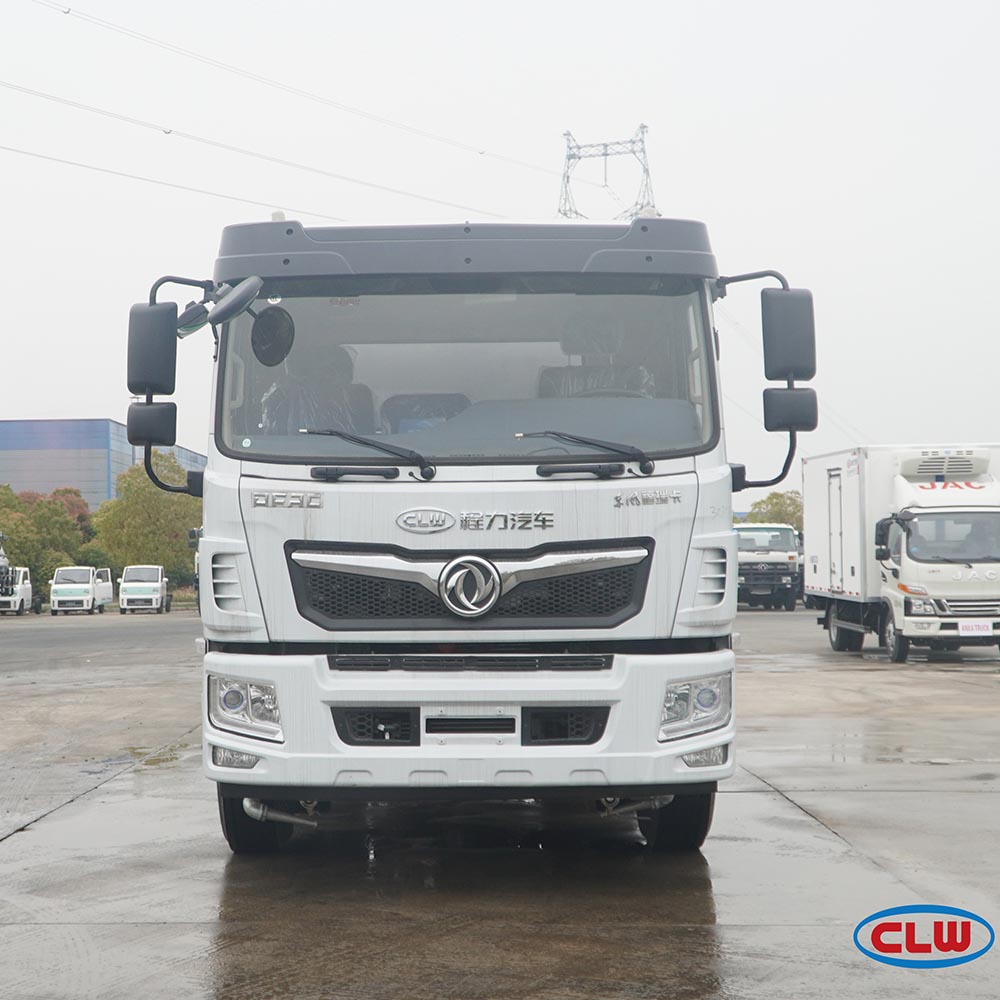
Camions de béton prêt à l'emploi ou camions de béton volumétrique : Lequel vous convient le mieux ?
Le choix entre béton prêt à l'emploi et béton volumétrique dépend des exigences spécifiques de votre projet de construction. Béton prêt à l'emploi, délivré par voie normale camions à béton de transitIl est idéal pour les projets à grande échelle avec des les mélanges où béton peut être versé en continu.
Camions à béton volumétriqueEn revanche, ils excellent dans les projets de plus petite envergure, ceux dont la nature varie. les mélangesou ceux qui se trouvent dans des endroits éloignés où l'accès à l'Internet est difficile. usines de traitement par lots est limitée. Leur capacité à mélanger le béton sur place offre une certaine flexibilité et réduit les déchets. Cette décision dépend de facteurs tels que la taille du projet, béton nécessaireL'accessibilité et la nécessité d'une formation spécifique en matière d'éducation et de formation. les mélanges.
Quelle quantité de béton un camion malaxeur peut-il contenir ?
La capacité d'un camion-bétonnière varie en fonction de la taille du béton tambour ou le volume de béton a mélangeur volumétrique peut produire. Normes camions à béton contiennent généralement entre 8 et 10 mètres cubes de béton. Cependant, les plus grands camions peut contenir jusqu'à 12 mètres cubes ou plus dans un unique voyage.
Mélangeurs volumétriquesEn revanche, ils n'ont pas de capacité fixe puisqu'ils produire du béton à la demande. Ils peuvent généralement produire jusqu'à 10 mètres cubes ou plus par heure, ce qui permet un coulage continu jusqu'à ce que les exigences du projet soient satisfaites.
<img src="”https://thespecialtrucks.com/wp-content/uploads/2024/11/Aluminum-Alloy-Oil-Tanker-%E2%80%93-26m%C2%B3.jpg”" alt=""Aluminium" alloy oil tanker – 320hp, 26m³ capacity”>
Quel est le rôle d'un tambour de camion à béton ?
Les tambour est le cœur d'une norme camion-bétonnière. Sa fonction première est de transport et mélange les bétonIl s'agit donc d'un produit liquide qui reste à l'état liquide jusqu'à ce qu'il atteigne le point d'entrée de l'eau de mer. chantier de construction. La rotation constante de la tambourLe système d'alerte, aidé par des lames internes, permet d'éviter que l'on se retrouve dans une situation d'urgence. ciment, agrégatet l'eau de se déposer et de durcir.
Les du tambour La conception facilite également la décharge contrôlée des béton par le biais d'un goulottepermettant une mise en place précise à l'endroit de la coulée. Les mélangeur à tambour garantit la béton reste homogène et façonnable, ce qui est essentiel pour obtenir la résistance et la finition souhaitées dans la structure finale.
Comment un camion à béton déverse-t-il le béton ?
Décharge béton d'un camion-bétonnière implique un processus soigneusement contrôlé. Pour les produits camions, la rotation tambour est inversé, ce qui provoque l'inversion de la béton de s'écouler vers l'arrière de la camion. La gravité tire alors le béton en bas d'un goulottequi peut être ajustée pour atteindre des points d'écoulement spécifiques.
Mélangeurs à déchargement frontalcomme son nom l'indique, béton de décharge de l'avant de la camionLe système d'information sur la santé (SIS) offre des avantages dans les espaces restreints ou dans les zones à accès limité. Camions mélangeurs volumétriques utilisent un mécanisme différent, en pompant le produit fraîchement mélangé. béton par l'intermédiaire d'un tuyau ou d'une bande transporteuse, ce qui permet une plus grande souplesse d'installation.
Où puis-je trouver des camions à béton d'occasion à vendre ?
Trouver une solution fiable camions à béton d'occasion nécessite des recherches approfondies et une diligence raisonnable. Les places de marché en ligne réputées, spécialisées dans l'équipement lourd, répertorient souvent des camions de divers fabricants de camions. Contacter directement fabricants de camions ou les revendeurs agréés peuvent également permettre de réaliser des économies sur les prix de vente. béton usagé.
Inspection de la du camion l'état, les registres d'entretien, et corps du mélangeur (tambour ou mélangeur volumétrique) est cruciale avant l'achat. Des facteurs tels que la du camion l'âge, le kilométrage et l'état général du véhicule influencent considérablement son prix et sa fiabilité à long terme.
Quels sont les différents types de bétonnières utilisées dans les camions ?
Alors que la rotation tambour est le plus reconnaissable bétonnièreIl en existe d'autres, en particulier dans les pays de l'UE. camions-bétonnières volumétriques. Camions mélangeurs volumétriques utiliser un mélangeur volumétriqueParfois appelé mélangeur continu, il dose et mélange les ingrédients avec précision et à la demande. Cela permet d'ajuster la mélange de béton à la volée, en fonction des exigences spécifiques du projet.
En outre, les variations au sein des mélangeurs à tambour existent, y compris différents tambour tailles, configurations des lames et mécanismes d'éjection (à l'arrière ou à l'extérieur). décharge frontale). Il est essentiel de comprendre ces différences pour choisir le bon camion pour votre applications concrètes.
FAQ sur les camions à béton
Quelle est la durée de vie typique d'un camion à béton ?
La durée de vie d'un camion à béton varie considérablement en fonction de l'utilisation, de l'entretien et des conditions d'exploitation. S'il est bien entretenu, un camion peut durer 10 ans ou plus.
Quelle est la fréquence de nettoyage d'un tambour de camion à béton ?
Un nettoyage régulier est essentiel pour éviter l'accumulation de béton et assurer la longévité du tambour. Le nettoyage devrait idéalement être effectué après chaque utilisation ou au moins chaque jour de fonctionnement.
Quel type d'entretien un camion malaxeur à béton nécessite-t-il ?
Les camions à béton doivent faire l'objet d'un entretien régulier : vidange d'huile, lubrification, rotation des pneus et inspection du tambour de malaxage et d'autres composants.
Un camion à béton peut-il livrer du béton par tous les temps ?
Des conditions météorologiques extrêmement froides ou chaudes peuvent affecter le fonctionnement du béton et des camions. Des précautions particulières peuvent être nécessaires dans de telles conditions.
Quelles sont les mesures de sécurité à prendre lors de l'utilisation d'un camion à béton ?
La conduite d'un camion à béton exige une formation spécialisée et le respect de protocoles de sécurité. Les conducteurs doivent être conscients des angles morts, de la répartition du poids et des procédures de chargement et de déchargement appropriées.
Principaux enseignements :
- Les camions à béton sont essentiels pour une livraison efficace du béton dans le secteur de la construction.
- Il en existe deux types principaux : les camions malaxeurs de béton prêt à l'emploi et les camions malaxeurs de béton volumétrique.
- Le choix du bon camion dépend de la taille du projet, des besoins en matière d'enrobés et de l'emplacement.
- Un entretien régulier est essentiel pour maximiser la durée de vie d'un camion à béton.
- Les protocoles de sécurité sont primordiaux lors de l'utilisation d'un camion à béton.
N'oubliez pas que le choix de la bonne camion à béton est une décision cruciale pour tout projet de construction. En comprenant les différentes types de camions à bétonGrâce à la connaissance des camions à béton, de leurs capacités et des facteurs de coût, vous pouvez optimiser vos opérations et garantir la réussite de vos projets. Contactez-nous dès aujourd'hui pour discuter de vos besoins spécifiques et trouver la solution de camion à béton idéale pour votre entreprise. Nous sommes experts en usines de fabrication de camions à béton et pouvons vous aider à trouver la meilleure solution pour vos besoins.

